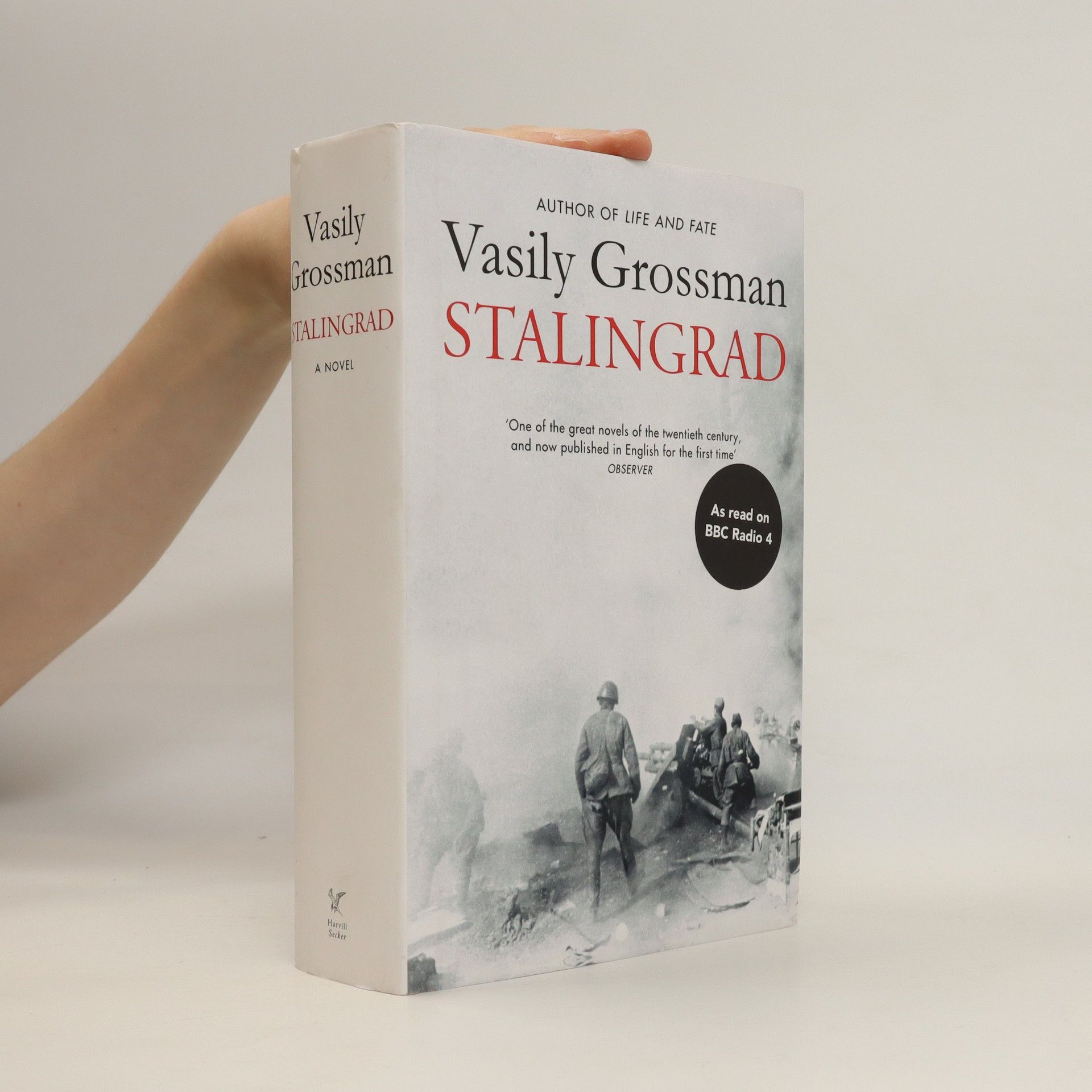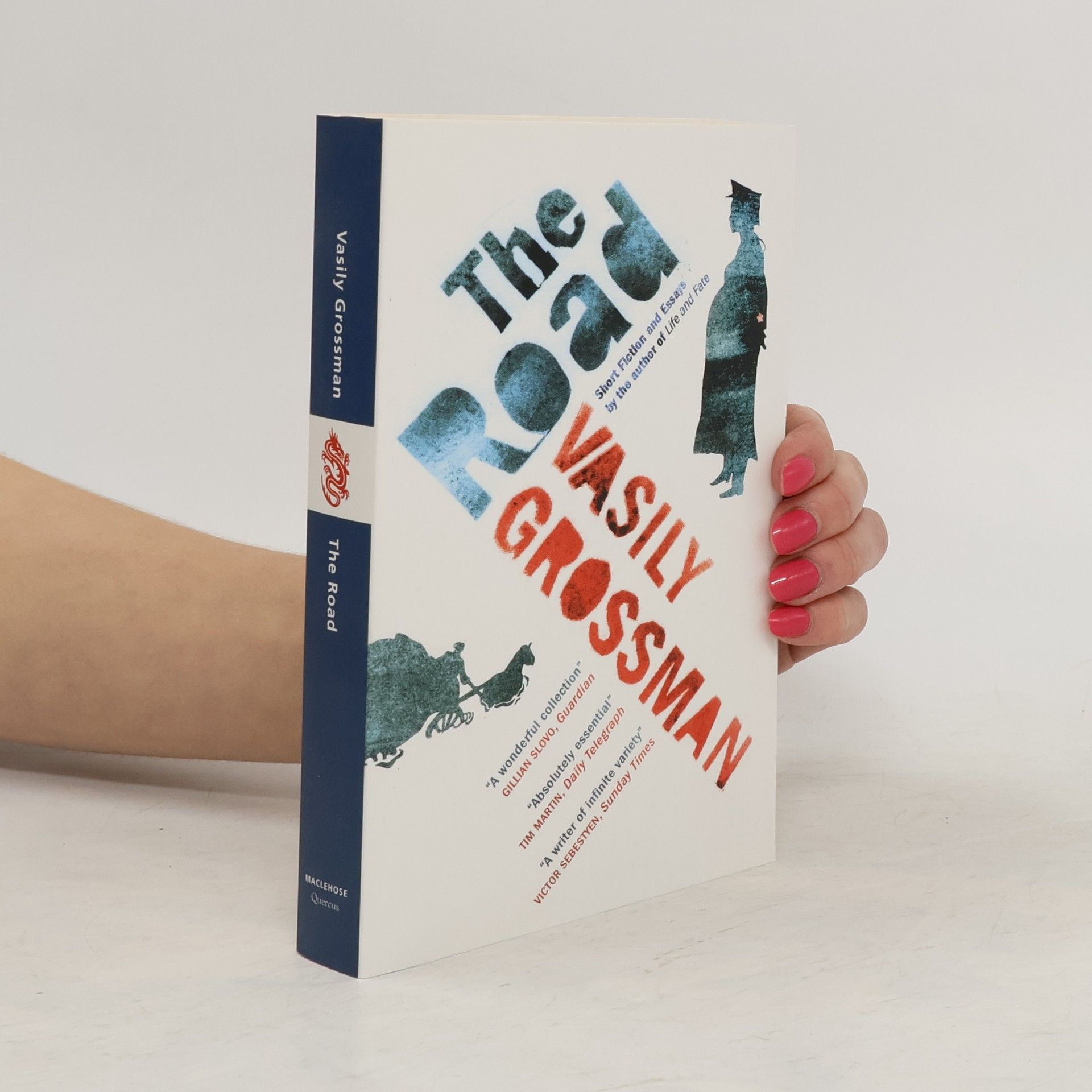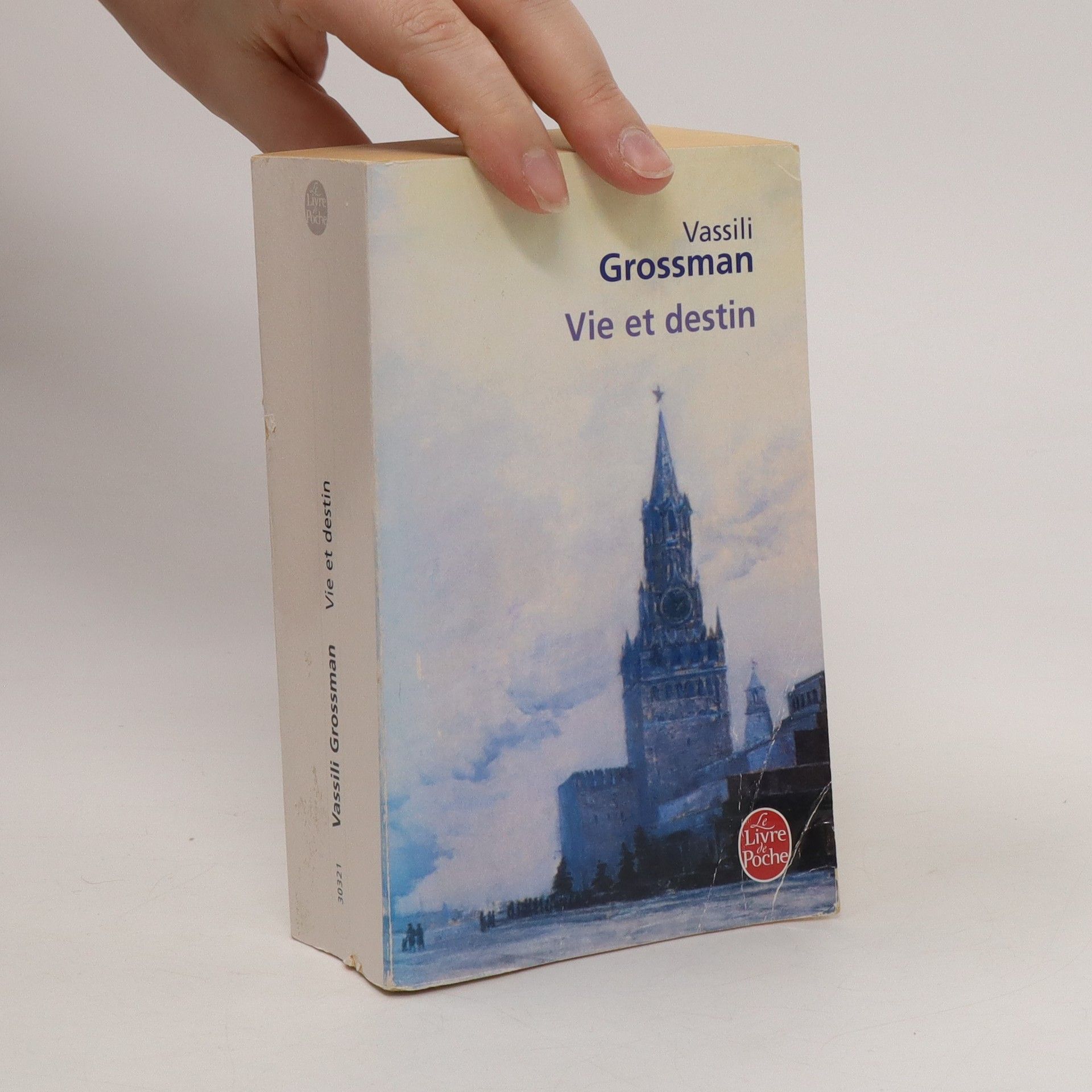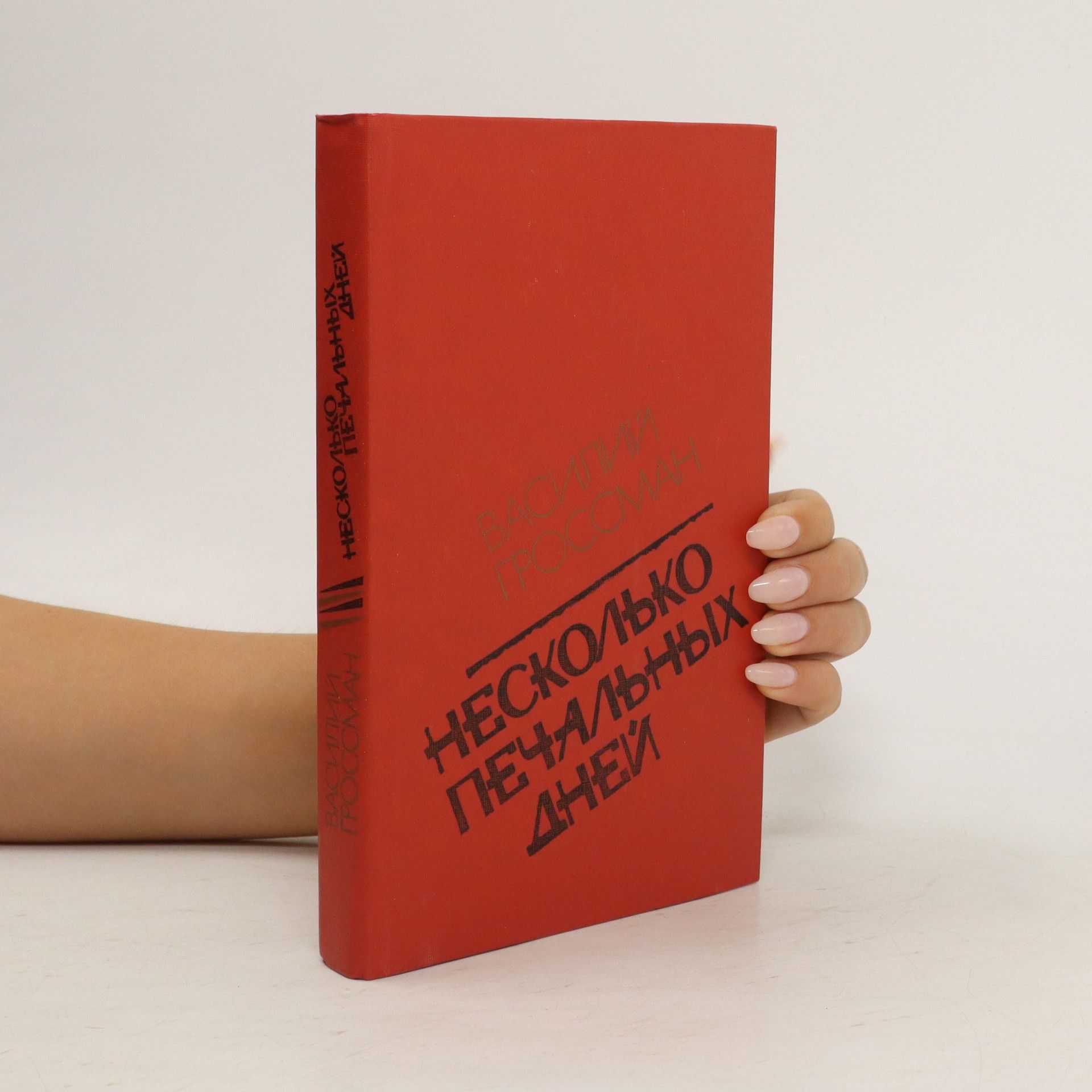Dans ce roman-fresque, composé dans les années 1950, à la façon de Guerre et paix, Vassili Grossman (1905-1964) fait revivre l'URSS en guerre à travers le destin d'une famille, dont les membres nous amènent tour à tour dans Stalingrad assiégée, dans les laboratoires de recherche scientifique, dans la vie ordinaire du peuple russe, et jusqu'à Treblinka sur les pas de l'Armée rouge. Au-delà de ces destins souvent tragiques, il s'interroge sur la terrifiante convergence des systèmes nazi et communiste alors même qu'ils s'affrontent sans merci. Radicalement iconoclaste en son temps - le manuscrit fut confisqué par le KGB, tandis qu'une copie parvenait clandestinement en Occident -, ce livre pose sur l'histoire du XXe siècle une question que philosophes et historiens n'ont cessé d'explorer depuis lors. Il le fait sous la forme d'une grande œuvre littéraire, imprégnée de vie et d'humanité, qui transcende le documentaire et la polémique pour atteindre à une vision puissante, métaphysique, de la lutte éternelle du bien contre le mal.
Vasilii Grossman Livres
Vassili Grossman était un écrivain russe réputé pour ses puissantes représentations de la Seconde Guerre mondiale et de son coût humain. Ses reportages de première ligne et ses romans, forgés par une expérience directe de la guerre, se caractérisent par un réalisme saisissant et une profonde compréhension de la souffrance. L'œuvre de Grossman témoigne de manière poignante des atrocités du XXe siècle, tout en célébrant la résilience de l'esprit humain face à une brutalité inimaginable. Son écriture explore les complexités morales et la recherche de l'humanité dans les circonstances les plus sombres.






The Road
- 400pages
- 14 heures de lecture
The collected shorter works by the author of Life and Fate and Everything Flows, published in English for the first time.
Life and Fate: Introduction by Polly Jones
- 936pages
- 33 heures de lecture
"Suppressed by the KGB and years later smuggled out of the Soviet Union to be published, Vasily Grossman?s novel is an unsparing story of ordinary Russians tragically caught between the fascism of the invading Nazis and the oppression of their own Soviet government. The sprawling plot follows the travails of the extended family of Viktor Shtrum along the vast eastern front of the war. Shtrum is a brilliant nuclear physicist who faces rising anti-Semitism in Moscow while his relatives navigate the threat of camps and prisons on both the Soviet and the Nazi sides. Grossman?s extensive wartime reporting, combined with his Tolstoyan narrative skills, allow him to portray with unprecedented detail and authenticity the human cost of the struggle between two freedom-denying powers. In vividly rendered scenes that range from the dramatic battle of Stalingrad to the remote Siberian gulag, and encompassing characters ranging from a grieving mother to a woman in love and from a six-year-old boy on the way to a gas chamber to Stalin and Hitler, Grossman?s masterpiece is a profound and moving reckoning with the darkness of the twentieth century and a testament to the stubborn persistence of kindness and hope."--Publisher
Stalingrad
- 704pages
- 25 heures de lecture
"Vassily Grossman (1905 -1964) has become well-known in the last twenty years - above all for his novel Life and Fate. This has often been described as a Soviet (or anti-Soviet) War and Peace. Most readers, however, do not realize that it is only the second half of a dilogy. The first half, originally titled Stalingrad but published in 1952 under the title For a just cause, has received surprisingly little attention. Scholars and critics seem to have assumed that, since it was first published in Stalin's lifetime, it can only be considered empty propaganda. In reality, there is little difference between the two novels. The chapters in the earlier novel about the Shaposhnikov family are as tender, and sometimes humorous, as in the later novel. The chapters devoted to the long retreats of 1941 and the first half of 1942 are perhaps still more vivid than the battle scenes in the later novel"-- Provided by publisher
Forever Flowing
- 256pages
- 9 heures de lecture
'Everything Flows is as important a novel as anything written by Solzhenitsyn, and Robert Chandler's superb translation makes it a joy to read'Antony BeevorIvan Grigoryevich has been in the Gulag for thirty years. Released after Stalin's death, he finds that the years of terror have imposed a collective moral slavery. He must struggle to find a place for himself in an unfamiliar world. Grossman tells the stories of those people entwined with Ivan's fate: his cousin Nikolay, a scientist who never let his conscience interfere with his career, Pinegin, the informer who had Ivan sent to the camps and Anna Sergeyevna, Ivan's lover, who tells of her involvement as an activist in the Terror famine of 1932-3.Everything Flows is Vasily Grossman's final testament, written after the Soviet authorities suppressed Life and Fate.'Vasily Grossman is the Tolstoy of the USSR' Martin Amis
Vasily Grossman wrote three novels about the Second World War, each offering a distinct take on what a war novel can be, and each extraordinary. A common set of characters links Stalingrad and Life and Fate, but Stalingrad is not only a moving and exciting story of desperate defense and the turning tide of war, but also a monumental memorial for the countless war dead. Life and Fate, by contrast, is a work of moral and political philosophy as well as a novel, and the deep question it explores is whether or not it is possible to behave ethically in the face of overwhelming violence. The People Immortal is something else entirely. Set during the catastrophic first months of the German invasion of the Soviet Union, this is the tale of an army battalion dispatched to slow the advancing enemy at any cost, with encirclement and annihilation its promised end. A rousing story of resistance, The People Immortal is the novel as weapon in hand.
Spisovatel ve válce: Vasilij Grossman s Rudou armádou 1941 – 1945
- 334pages
- 12 heures de lecture
K vydání připravili Antony Beevor a Luba Vinogradova. Známý historik Antony Beevor se setkal s pozůstalostí sovětského publicisty a spisovatele Vasilije Grossmana během psaní své oceňované knihy Stalingrad - Osudové střetnutí 1942-1943. Cenný materiál ho pak inspiroval k uspořádání a vydání této knihy, která by za života spisovatele Grossmana rozhodně nemohla vyjít. Vasilij Grossmann vstoupil dobrovolně do Rudé armády v roce 1941 po napadení Sovětského svazu Hitlerem. Více než tři roky pracoval jako speciální zpravodaj pro armádní noviny Rudá hvězda. Během svého válečného působení se etabloval jako "hlavní hlasatel" z fronty. Jeho reportáže a hlášení plné krvavé reality a beznaděje však byly ve své době přísně cenzurovány. Tato kniha, doplněná spoustou nepublikovaných Grossmanových poznámek, postřehů a dobových popisů perfektně doplňuje renomované práce pojednávající o druhé světové válce. Vasilij Grossman jako vnímavý pozorovatel se smyslem pro důležité detaily podává čtenáři barevný a panoramatický pohled na tehdejší události. Jeho zprávy z bitvy u Stalingradu, bitvy u Kurska, z dobývaného Berlína nebo z návštěvy osvobozené Treblinky slouží jako modelový příklad válečné reportáže.
Vom Staunen über das Glück, am Leben zu sein.
Známý historik Antony Beevor se setkal s pozůstalostí sovětského publicisty a spisovatele Vasilije Grossmana během psaní své oceňované knihy Stalingrad Osudové střetnutí 1942-1943. Cenný materiál ho pak inspiroval k uspořádání a vydání této knihy, která by za života spisovatele Grossmana rozhodně nemohla vyjít. Vasilij Grossmann vstoupil dobrovolně do Rudé armády v roce 1941 po napadení Sovětského svazu Hitlerem. Více než tři roky pracoval jako speciální zpravodaj pro armádní noviny Rudá hvězda. Během svého válečného působení se etabloval jako "hlavní hlasatel" z fronty. Jeho reportáže a hlášení plné krvavé reality a beznaděje však byly ve své době přísně cenzurovány. Tato kniha, doplněná spoustou nepublikovaných Grossmanových poznámek, postřehů a dobových popisů perfektně doplňuje renomované práce pojednávající o druhé světové válce. Vasilij Grossman jako vnímavý pozorovatel se smyslem pro důležité detaily podává čtenáři barevný a panoramatický pohled na tehdejší události. Jeho zprávy z bitvy u Stalingradu, bitvy u Kurska, z dobývaného Berlína nebo z návštěvy osvobozené Treblinky slouží jako modelový příklad válečné reportáže
В книгу одного из крупнейших мастеров русской советской прозы Василия Гроссмана (1905 – 1964) вошли почти все лучшие произведения, созданные писателем за тридцать лет творческой деятельности, ставшие уже библиографической редкостью («Четыре дня», «В городе Бердичеве», «Повесть о любви», «Тиргартен» и др.).Уважением к человеку, осмыслением глубинных точек человеческой жизни пронизаны впервые издаваемые рассказы. Их отличает ощущение праздничности бытия при всех его теневых сторонах. Достоинство прозы писателя – богатство и пластичность языка, стремление к афористически насыщенному слову, тонкий психологизм, подлинно высокий драматизм повествования. В. Гроссман – автор и посмертно изданного романа «Жизнь и судьба», который по глубине и масштабности является одной из серьезнейших работ последнего времени.

